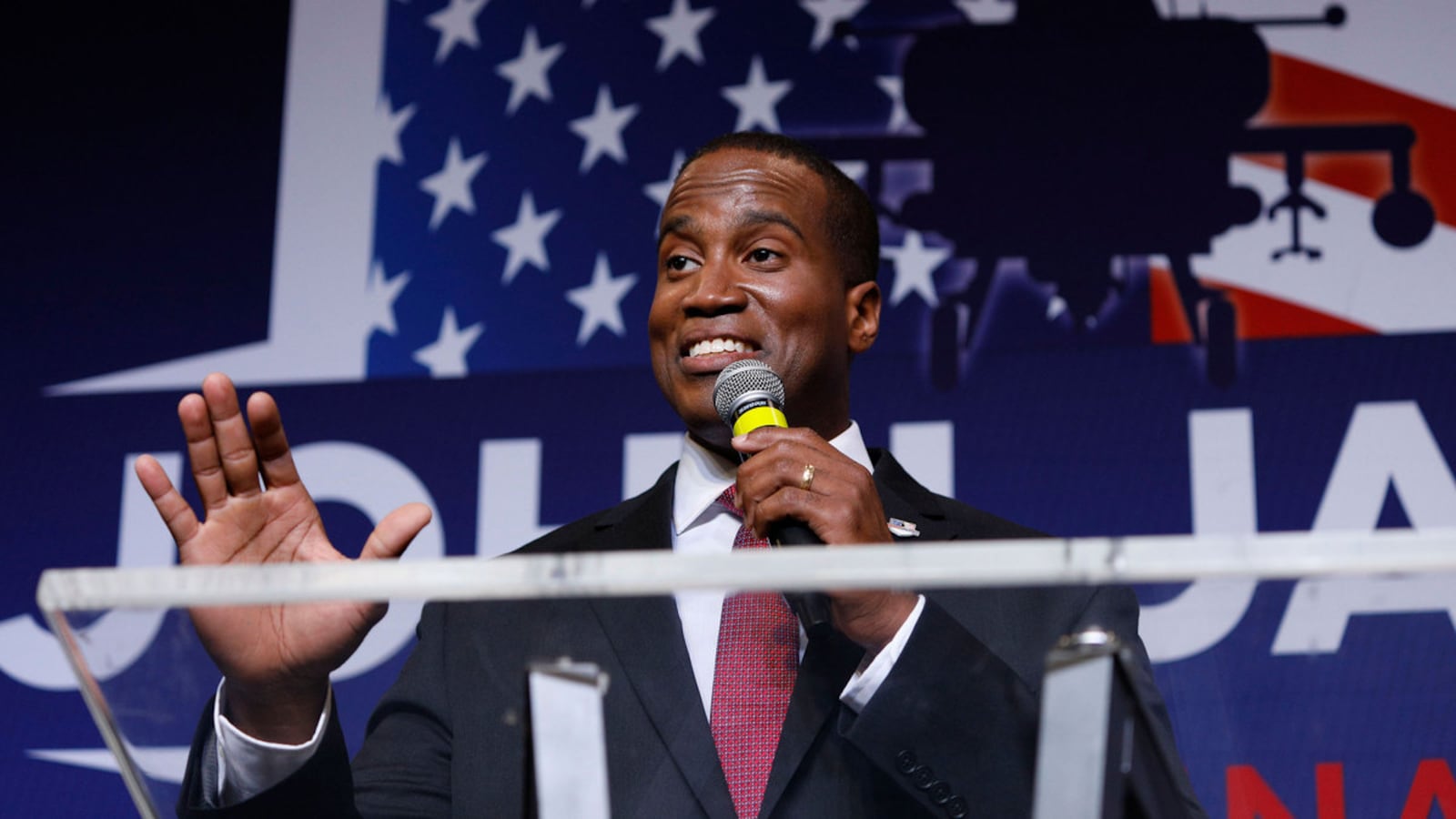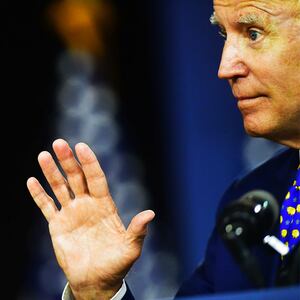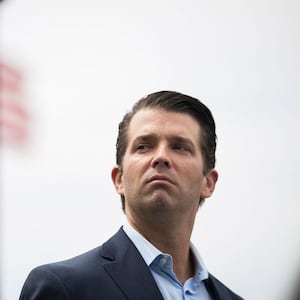As coronavirus infections have spiked nationwide, national Republicans have encouraged the party’s Senate candidates to redirect outrage over the pandemic away from the government’s response and towards China, where the virus originated.
John James, the Republican candidate for Senate in Michigan and a rising star within the GOP ranks, has been there in lockstep.
“The COVID-19 pandemic has revealed the danger of America’s supply chain being reliant upon other nations, notably communist China, for the critical goods and services we need,” James wrote in a Fox News op-ed, in which he attacked Xi Jinping’s regime for “predatory trade practices, currency manipulation, dumping, intellectual property theft, espionage, cyber and information warfare and worse.”
In another opinion piece for the Detroit News, James called on Americans to “social distance” from China’s “diseased regime,” which he blamed for tolerating the so-called wet markets where the novel coronavirus is thought to have first crossed the species barrier into humans.
But James’ increasingly aggressive stance with regards to China leaves out one important biographical detail: his family’s firm has, in recent years, benefitted from a lucrative business relationship between one of its largest clients and a state-controlled Chinese automaker.
James currently serves as the president of James Group International, the Detroit-based logistics and supply-chain business founded by his father. He is also the CEO of subsidiary Renaissance Global Logistics, which coordinates shipment of U.S.-made auto parts to assembly plants worldwide. Among Renaissance’s most significant international shipping destinations is Changan Ford Automobile Co., Ltd, a joint venture between the Ford Motor Company and Changan Automobile, a state-owned automaker run under the auspices of numerous top Communist Party officials.
Changan is a subsidiary of the Chinese defense conglomerate China South Industries Group. The group, which manufactures firearms, mobile assault equipment, ammunition and anti-terrorism devices for the People’s Liberation Army, is included on a list maintained by the Defense Department of Chinese companies that operate within the U.S. and have ties to the Chinese military.
Business in mainland China has become increasingly important for automakers in recent years, as the burgeoning Chinese middle class has increased demand in the country. The Chinese market has accounted for 70 percent of the auto industry’s growth worldwide over the past decade, according to McKinsey. That trend has made businesses like Renaissance Global increasingly reliant on the market as well.
Online marketing literature for the James Group and Renaissance Global repeatedly refers to the firm’s commercial relationship with China and Chinese-owned firms, the group has participated in trade missions to China to promote business in the country, and an examination of publicly available commercial trade data by The Daily Beast found that the vast majority of the James Group’s international shipments over the past three years have been to Changan Ford’s Chinese facilities.
The arrangement means that James and his family’s business has benefitted from amicable relations with China. While James has been critical of the country over its handling of COVID, he also has been eager to champion Trump's routine use of tariffs against China as a geopolitical lever.
“If we don’t fight this conflict with soybeans now,” James told the National Review in May, “we’ll fight it with bullets later.”
James’ campaign strongly emphasized that James Group International’s relationship is with Ford Motor Company, not Changan Ford, and noted that the company simply provides shipping logistics—not actual shipping—of products manufactured in America for potential sale overseas.
“John’s business exports American-made products on behalf of an American auto manufacturer to paying customers around the world,” said Abby Walls, the campaign’s spokesperson. “That is exactly how it should go to strengthen our manufacturing and build American jobs at home. Anyone leveling attacks against John James or his business is ignorant to how the global economy works.”
The harsh-on-China tone may put James at odds with his own family’s business interests, but it also reflects a shift in approach from just two years ago. During his first campaign for the Senate in 2018, James was much more circumspect about the role of China in global trade—and leaned on his experience as a businessman with dealings in China as part of his foreign policy bona fides.
“It’s important to have people who understand the impact on both family business and multinational companies, understanding the impact it will have on the supply chain and the bottom line,” James told Crain’s New York during that campaign, avoiding directly criticizing Trump’s then-bellicose language about escalating a trade war with China. “I think the president has identified the issue and is beginning the conversation.”
James is far from the only Republican candidate who has changed the tenor of his stance on China in recent months, particularly as it relates to trade. As The Daily Beast reported in May. Sen. Steve Daines of Montana has begun airing advertisements pledging to hold China “accountable” for the coronavirus pandemic, despite once working in China for a Fortune 100 company and being praised by the nation’s top diplomat as “China’s ambassador in Congress.” Trump himself, who frequently uses an anti-Chinese racial epithet as a shorthand for the virus, once called Chinese President Xi Jinping his “friend” and lavished Xi with praise in the early days of the pandemic.
The last time James ran for the U.S. Senate, his campaign made little secret of his company’s strong ties with China. In a YouTube video posted by the campaign in October 2017, one month after he entered the Republican primary for the 2018 Senate race against incumbent Democrat Sen. Debbie Stabenow, James addresses the camera about the “nose-blindness” in Washington, D.C., likening the nation’s capital to a cat owner who has become inured to the smell of urine.
“They can’t smell the cat pee in Washington,” James tells the camera as he strolls the 300,000-square-foot Detroit warehouse owned by his family’s business, walking under multiple Chinese flags hanging from the rafters.
The video, one of 100 “unscripted” videos he pledged to do in the first 100 days of his campaign, has since been made private.








